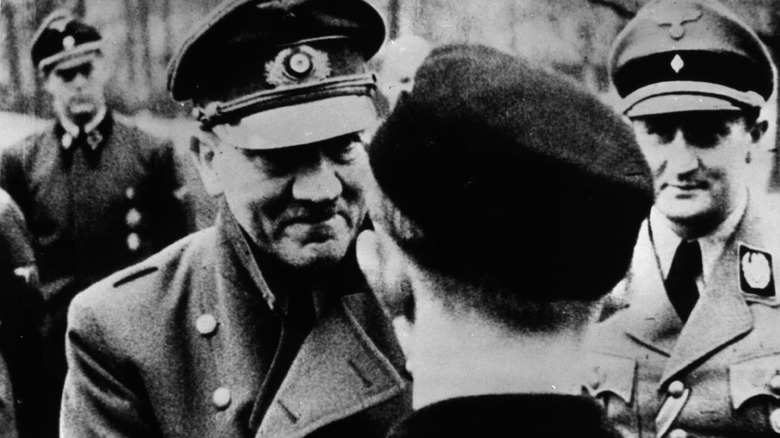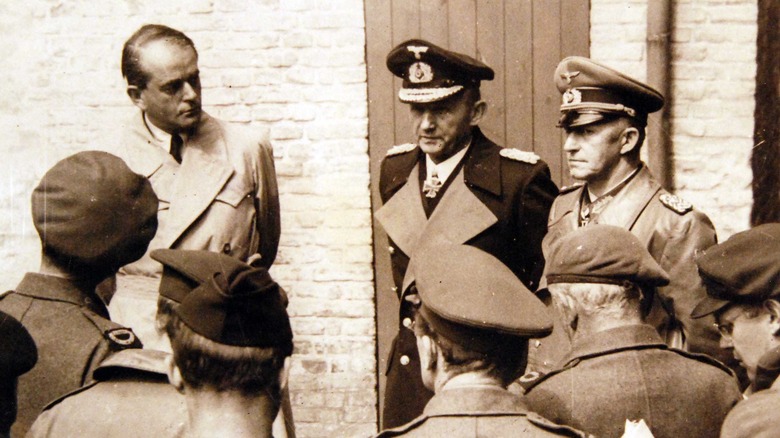What Really Happened After Adolf Hitler Died?
While the rise of Nazi Germany gave them temporary control and/or influence over most of continental Europe, by April of 1945 the regime's territory had been whittled down to a narrow section of land stretching from Denmark down to northern Italy. Hitler began to indulge in delusional strategies that would allow Germany to somehow regain the initiative as the might of the Allies squeezed in from either side. On April 30, Hitler committed suicide, but not before clarifying who his successors were to be.
While Luftwaffe head Herman Goering and SS leader Heinrich Himmler both conspired to take leadership positions for themselves, Hitler selected Admiral Karl Dönitz and Joseph Goebbels to replace him as President and Chancellor of Germany, respectively; ever since the death of President Hindenburg in 1934, Hitler had occupied both offices as "Fuehrer." When Goebbels died via suicide, Dönitz was left as the highest-ranking member of the German government (via Britannica).
The German government survived the loss of Hitler and Berlin
The Flensburg Government, named after the port town in which it was based, is what the German government under President Dönitz came to be known as after the fall of Berlin (via Forces.net). Despite the massive loss of territory, the capital, and the death or capture of most other Nazi officials including Hitler himself, Dönitz still technically had several million soldiers at his command in the unoccupied regions of Germany, Austria, and Czechoslovakia. Knowing that the war was over, but wanting to spare as much of the German military and populace from Soviet capture as possible, they stalled their signing of the final instrument of surrender until May 8.
In the meantime, events such as the Prague Offensive (per World War II Database) and Operation Hannibal (per History Extra) were underway, where millions of German soldiers (and civilians, in the latter) attempted to flee westward. Once the instrument of surrender was signed, the German government and military were technically dissolved, but its members were allowed to continue meeting until May 23, when all were arrested (pictured above). Despite being the last leaders of Nazi Germany, Dönitz and Albert Speer (the only other high-ranking Nazi official in the provisional government, and the one who convinced Dönitz to cancel Hitler's scorched earth policy known as the "Nero Decree") avoided execution and received relatively lenient sentences compared to their peers at Nuremberg.

